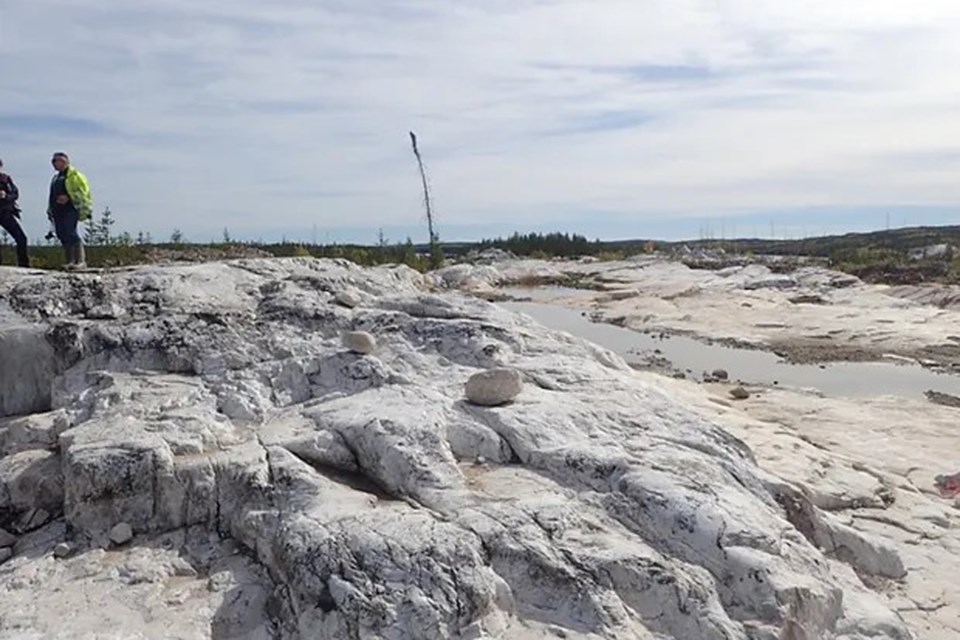Frontier Lithium is providing a deep dive of what its proposed lithium mine and mill will look like, way up in a corner of northwestern Ontario, near the Manitoba border.
The Sudbury mine developer released a feasibility study this week of its open-pit and underground PAK project, projected to generate $11 billion in net revenue over a 31-year mine life. The projected average annual earnings are projected at $285 million.
PAK is located 175 kilometres north of Red Lake. It is the largest and highest grade lithium project in Ontario among the major lithium plays in the region.
If everything falls neatly into place and in a timely way, the mine and mill could be operating by 2030, employing more than 230.
In a May 28 news release, Frontier president-CEO Trevor Walker called PAK a “nation-building” type of project that will feed Canada’s battery supply chain and deliver long-term value to shareholders and the people in nearby Indigenous communities.
"Canada's pro-battery policies give Frontier a strategic edge as regional lithium supply deficits are expected to continue into the 2030s. We're developing a high-quality, large-scale, low-cost lithium resource to anchor a domestic supply chain—strengthening energy security, competitiveness, and sustainability,” said Walker.
Frontier said PAK provides “compelling” economics to become North America’s lowest-cost producer of spodumene concentrate and can be a resilient operation when it comes to weathering the volatile commodity pricing that comes with lithium.
Spodumene concentrate is a lithium material that’s essential for battery manufacturing.
Frontier plans to produce 200,000 tonnes a year of this concentrate, totalling 6.1 million tonnes over the three decades.
With three deposits on site, PAK will be developed in phases and could self fund its own growth.
The construction price tag for PAK is $943 million with $137 million needed in sustaining capital when the mine is running, and $60 million to be set aside for mine closure.
Accordingly to project timelines, construction at the PAK site could tentatively begin in mid-2028 with mine and mill commissioning by mid-2030.
Frontier said it expects to make a final investment decision within 24 months to greenlight the project.
Maintaining that schedule will be determined by how fast the company is able to secure government permits, hopefully in the first half of 2027, along with other variables such as final design engineering, the infrastructure upgrades to an access road, market conditions and securing project financing.
Along for the ride is Mitsubishi Corp. as a strategic investor in Frontier. The multi-billion-dollar global conglomerate has ties to the battery electric vehicle sector and is a partner in the integrated mine and refinery proposal.
Mitsubishi bought in last year for $25 million to get a 7 per cent project stake and can boost that to 25 per cent now that the feasibility study is out.
In a statement, Kota Ikenishi, Mitsubishi’s general manager of the battery minerals department, is pleased with the progress made and believes PAK is a “top tier” North American lithium project.
“We believe that the PAK Project will make a meaningful contribution to building a reliable battery supply chain in Ontario, Canada and across North America. We look forward to continue working closely with our partner as the project moves toward production."
Frontier also released a new mineral reserve estimate for PAK, showing 31.1 million tonnes of lithium oxide at 1.51 per cent, a 37 per cent jump from the last estimate posted in 2023.
The company’s strategy is to ship the concentrate to Thunder Bay where Frontier recently purchased the former power plant site on the city’s waterfront from a demolition company. This will be the site for a future lithium refinery. But that is a separate project and was not represented in the feasibility study.
Well before that happens, a permanent road must be built into the remote site. A road is expected to begin construction sometime this year as part of the government-funded and Indigenous-led Berens River bridge and road project. It’s a regional initiative intended to connect seven First Nation communities to the provincial highway system for the first time.
Last fall, Frontier received notice from Ottawa that it’s landed $6.1 million from the federal Critical Minerals Instructure Fund to string power lines onto its site and for preparatory work on an access road.
Aside from the three deposits, dubbed PAK, Spark and Bolt, Frontier said there’s plenty of upside on the property that could extend the mining life and improve the project’s economics. The company has identified two more prospects, named Ember and Pennock, that it’s currently exploring.
PAK also stands to be a substantial moneymaker for government, generating more than $1 billion in federal taxes and $699 million for provincial coffers over its operating life, plus an additional $645 million of Ontario Mining Tax.




